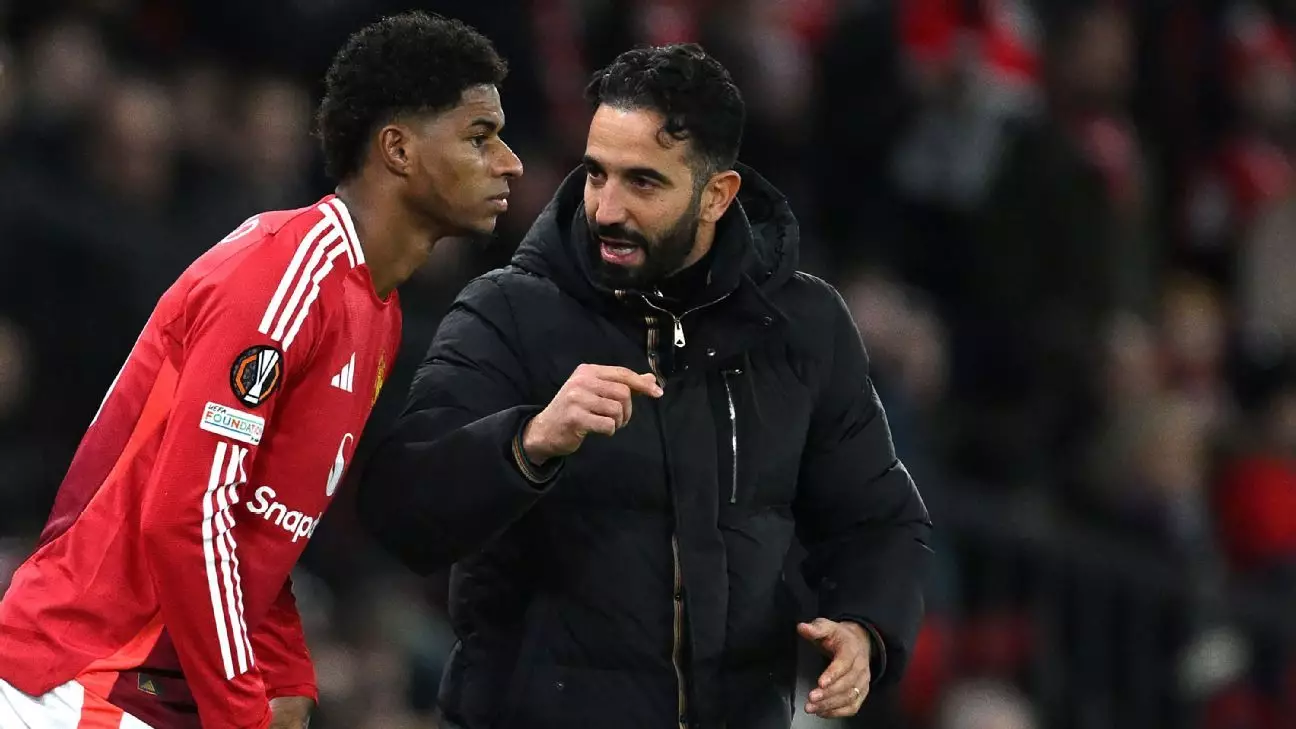In the world of football, leadership during times of crisis reveals the true character of a coach. Ruben Amorim’s recent statements regarding Manchester United’s precarious position in the Premier League highlight his unwavering commitment to his tactical philosophy, despite a concerning streak of poor performances. The Portuguese manager’s reluctance to anticipate reinforcements during the January transfer window reflects a deeper understanding of the current struggles within the club.
Amidst growing concern over Manchester United’s decline towards the relegation zone, Amorim’s dedication to his chosen 3-4-3 formation is particularly notable. Following a disheartening defeat to Newcastle, culminating in their fourth consecutive loss, questions have surfaced regarding the suitability of his tactical system given the available player profile. Yet, Amorim is resolute in his commitment to stick with 3-4-3, arguing that continuously altering tactics could exacerbate existing problems. His insistence on remaining true to his style speaks volumes about his philosophy: he believes success stems from consistency and a clear identity.
Amorim’s comments suggest that Manchester United, despite its rich history, is currently navigating financial limitations that restrict its ability to make significant transfers. By stating, “We don’t have that possibility in January,” he addresses the broader context of the club’s operational challenges, hinting at a need for strategic planning rather than mere short-term fixes. United’s managerial issues emphasize a critical need for adaptability, as Amorim recognizes that a lack of suitable players for his system cannot solely be remedied by an influx of new talent. The emphasis on balancing departures with any potential signings underscores the complexities involved in squad management.
As Amorim prepares for an upcoming clash against league leaders Liverpool, the stakes are undeniably high. He faces scrutiny not only from fans and analysts but also the inherited expectation that a change in coaching should yield immediate results. However, Amorim’s pragmatic approach rejects the notion of reverting to a system favored by his predecessor, Erik ten Hag, who bore the brunt of criticism for not meeting performance expectations. The Portuguese coach understands that reverting back to familiar ways—especially those that previously led to failure—rarely produces tangible benefits.
The road ahead for Ruben Amorim is fraught with challenges, yet his determination to instill a long-term vision amidst turmoil is commendable. His strategic stubbornness to stick with a particular system, even in the face of adversity, indicates a belief in his methodology. By fostering consistency and encouraging the team to adjust to his tactics, he aims to cultivate a team capable of delivering results over time. As United navigates its darkest moments, Amorim’s leadership will certainly be put to the test. Whether this unwavering commitment will pay off remains to be seen, but one thing is clear: true transformation often takes time and patience.

